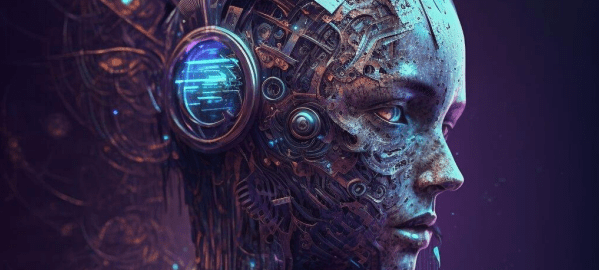The European Union is proposing new copyright rules that would extend copyright protection to generative AI-created content. This means that developers who create content using generative AI would need to obtain permission from the copyright holders of the content that the AI is trained on.
Under the proposal the rules apply to all AI systems that are placed on the market in the EU, regardless of where they are developed. The rules defines an AI system as a software or hardware system that can generate output, interpret data, or make decisions autonomously.
The new rules propose a risk-based approach to regulating AI systems. AI systems are classified into four risk categories: unacceptable risk, high risk, moderate risk, and low risk. Unacceptable risk AI systems are banned, high risk AI systems are subject to mandatory requirements, moderate risk AI systems are subject to voluntary measures, and low risk AI systems are not subject to any specific requirements.
The proposed rules also raise questions about the ownership of works created by generative AI. Under current copyright law, the author of a work is the person who creates it. However, it is not clear who would be considered the author of a work created by generative AI. It is possible that the copyright holder of the underlying data could be considered the author, or it is possible that the developer who trained the generative AI model could be considered the author.
This could have a significant impact on developers, as it would make it more difficult and expensive to create and distribute generative AI content. For example, developers who create generative AI content that uses copyrighted text, images, or music would need to obtain permission from the copyright holders of that content before they could distribute it. This could be a time-consuming and expensive process, as developers would need to identify the copyright holders and negotiate a license agreement. It could also stifle innovation in the field of generative AI, as developers may be hesitant to create content that they may not be able to distribute.
The EU is proposing these new rules in an effort to protect the rights of copyright holders. However, critics argue that the rules are too broad and could stifle innovation. The rules are still in the proposal stage, and it is not clear when they will be finalized or what impact they will have on developers.
Here are some of the implications of the proposed EU copyright rules for developers:
- Developers may need to obtain permission from the copyright holders of the content that the AI is trained on before they can create and distribute generative AI content.
- It could be more difficult and expensive for developers to create generative AI content.
- The proposed rules could stifle innovation in the field of generative AI.
The proposed rules are still in the early stages of development, and it is not yet clear how they will be implemented. However, if the rules are adopted in their current form, they could have a significant impact on developers who create generative AI content. Developers who use generative AI should be aware of the potential implications of the new rules and take steps to ensure that they are in compliance..

